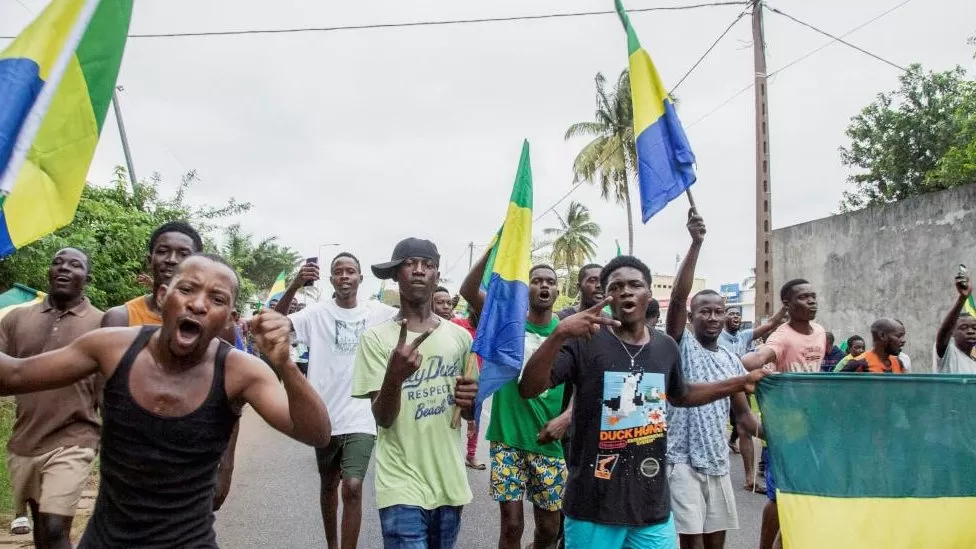Simple guide to the Gabon coup

In spite of opposition complaints of fraud, Mr Bongo’s re-election results were announced shortly after the takeover.
Following the death of his father, Omar Bongo Ondimba, who had ruled the country for 41 years, President Bongo was first elected in 2009.
Recently, Gabon has become the latest former French colony in Africa to experience a coup, following Mali, Burkina Faso, Guinea, and most recently Niger.
What you need to know.
It was reported that Mr Bongo had won the election with about two-thirds of the votes, but the coup leaders disagreed.
On Tuesday, the opposition claimed Albert Ondo Ossa was the rightful winner and that widespread rigging had taken place.
Officers of the army said they were “defending peace by putting an end to the current regime,” adding that the elections “did not meet the conditions for a transparent, credible, and inclusive election”.
The coup was welcomed by hundreds of people after the announcement.
Located on the west coast of Central Africa, it is known for its oil and cocoa resources.
Despite having one of sub-Saharan Africa’s highest average annual incomes – almost $9,000 (£7,000) in 2022, according to the World Bank – over a third of its population lives in poverty.
A small number of people control most of the country’s oil wealth.
Gabon, a country roughly the size of the United Kingdom, has just 2.4 million people and 90% of its territory is covered by forests. Although there seems to be a trend in French-speaking Africa, the simple answer is no.
In Burkina Faso, Mali, and most recently Niger, military takeovers were at least partly sparked by an Islamist insurgency raging more than a thousand miles to the north.
As a result of election fraud and a president who stayed in power too long, the army intervened in Gabon. Guinea’s coup of 2021 is echoed here.
It is possible that watching the military seize power elsewhere may have encouraged the army in Gabon to do the same.
Because France had been pushed back in the Sahel, the soldiers could have realized that the French would not intervene militarily to support Ali Bongo as they had done with his father decades earlier.
